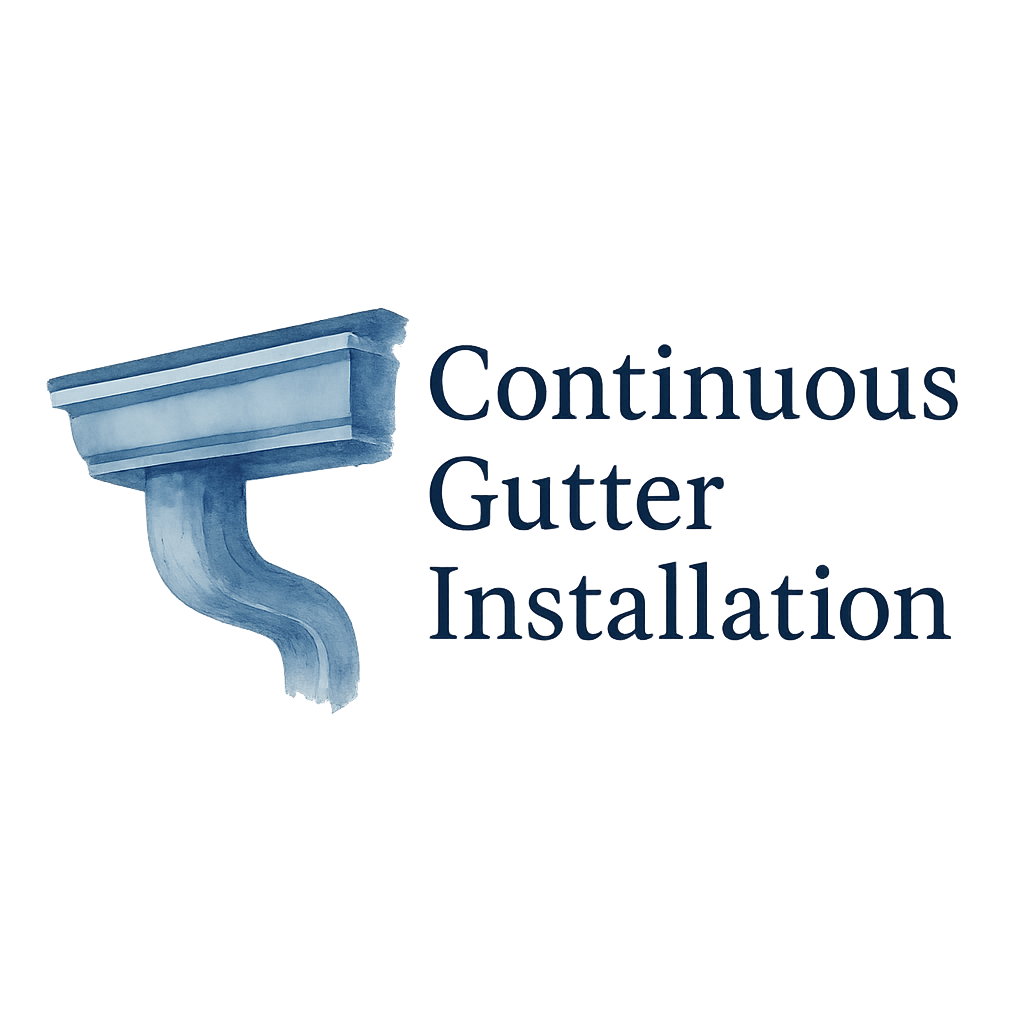If you’re tired of leaky seams, constant clogs, and water damage creeping along your home’s foundation, it’s time to consider installing continuous gutters. In this detailed, step-by-step guide, I’ll walk you through everything you need to know to install these seamless rain channels like a pro—without needing to break the bank.
Let’s dive right into the why and how!
Why Continuous Gutters Are a Game-Changer
What Are Continuous Gutters?
Unlike traditional sectional gutters, continuous gutters are made from a single piece of material—usually aluminum or copper—custom-fitted to your home. That means fewer joints and seams, which translates to fewer leaks and maintenance headaches.
If you’re new to this topic, you can start with the basics by checking out Gutter Installation 101.
Benefits Over Sectional Gutters
- Fewer leaks: No seams means fewer failure points.
- Cleaner look: Sleek and modern, they enhance your home exterior.
- Better performance: They handle heavy rains like a champ.
Want a quick rundown of the most affordable gutter options? These can also help you stay on budget.
Tools and Materials You’ll Need
Must-Have Tools
Before anything, gear up! You’ll need:
- Tape measure
- Chalk line
- Circular saw or snips
- Gutter machine (usually rented)
- Screws and brackets
- Level
Choosing the Right Materials
Your gutter’s material impacts everything from durability to price. Some popular options include:
- Aluminum: Lightweight, rust-resistant, and cost-effective
- Copper: Premium, stylish, but expensive
- Steel: Tough but prone to rust
Check out the types and styles of gutters to find what fits your needs.
Step 1: Assess Your Roofline and Home Exterior
Measuring Correctly
Get precise measurements of your roofline. This helps you avoid material shortages—or worse, waste.
Identifying Drainage Points
Locate where you want the downspouts. A good rule? Position them near natural slopes or water collection areas.
Pro Tip: Refer to Gutter Installation Basics for drainage layout best practices.
Step 2: Select the Best Gutter Type and Style
Style Options for Continuous Gutters
You’ll come across K-style, half-round, and fascia gutters. Each has a different look and flow rate.
- K-style: Modern and efficient
- Half-round: Classic but lower capacity
- Box or fascia: Great for commercial or flat roofs
Considerations for Budget and Aesthetics
Trying to stay budget-conscious? Head over to our cost-effective and budget gutters guides.
Also, if you’re aiming for a unique curb appeal, explore trendy gutter ideas to match your vibe.
Step 3: Prepare the Fascia and Mounting Surface
Inspecting for Damage
You don’t want to attach gutters to rotting wood. Check for any signs of damage, peeling paint, or mold.
Making Necessary Repairs
If needed, replace sections of the fascia or add new boards. Use treated wood to prevent future decay.
For more on spotting early gutter damage, browse our detailed tag page. If repairs are extensive, check out our gutter replacement tips too.

Step 4: Install the Gutter System
Hanging the Gutters Properly
This is the big moment! Using your chalk line and level, mount the gutters with a slight pitch toward the downspout—about ¼ inch for every 10 feet.
Securing with Brackets
Use hidden hangers or brackets spaced every 24 to 36 inches for strength and stability.
Don’t skimp here—it’s a key factor in gutter safety.
Step 5: Add Gutter Protection Systems
Benefits of Gutter Screens and Covers
Let’s face it—no one likes cleaning gutters. That’s why screens or mesh covers are a must-have. They reduce the buildup of leaves, dirt, and debris.
Choosing the Right Debris Control Solution
You’ve got options: micromesh screens, reverse curve covers, and foam inserts. All offer different levels of debris control.
Want to learn more about keeping gutters clog-free? Dive into Gutter Protection Systems.
Step 6: Perform Final Checks and Maintenance Setup
Leak Testing and Angle Adjustments
Run water through the gutter system and look for leaks. Tighten fittings and adjust the pitch as needed.
Planning Long-Term Care
You’re not done yet—plan a maintenance schedule. Seasonal inspections and cleanings are a must.
Start with these pro maintenance tips and seasonal care guides. For the cleaning itself, explore our full gutter cleaning resource page.
Budgeting Tips for Continuous Gutter Installation
Saving Money Without Compromising Quality
It’s tempting to cut corners, but quality matters. Find a balance with our detailed guide on gutter cost budgeting. It walks you through DIY vs. pro installs, material pricing, and hidden costs.
Also, don’t miss the cheap gutter options that don’t sacrifice performance.
Conclusion
There you have it—your complete 6-step roadmap to installing continuous gutters. With a bit of planning, the right tools, and a touch of elbow grease, you can save money, boost your curb appeal, and protect your home from water damage for years to come.
Remember, the key isn’t just installing gutters—it’s choosing the right style, preparing your home properly, and maintaining the system long-term.
Need more insights? Head to ContinuousGutterInstallation.com and start exploring your options today.
FAQs
1. Are continuous gutters better than sectional gutters?
Yes! Fewer seams mean fewer leaks, less maintenance, and a sleeker appearance.
2. Can I install continuous gutters myself?
Absolutely, if you’re handy and rent the right tools. Otherwise, hiring a pro is smart.
3. What’s the best material for continuous gutters?
Aluminum is the most common due to its durability and cost-effectiveness.
4. How often should I clean continuous gutters?
Twice a year—once in spring and once in fall. Use gutter screens to reduce cleaning needs.
5. What’s the average cost of installing continuous gutters?
Costs vary, but our budgeting guide covers it all.
6. Do I need permits to install gutters?
In most areas, no. But always check with your local building department.
7. What are signs my gutters need replacing?
Leaks, sagging, and rust are major gutter warning signs to look out for.


